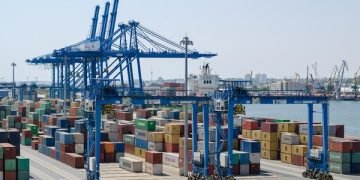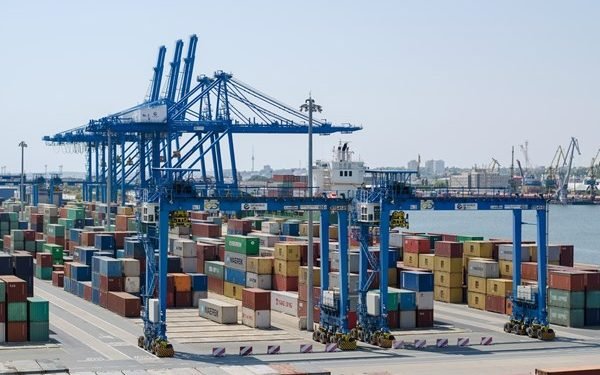By Maria Kalamatas | July 18, 2025
Constanța, July 18 — Shipping times between Romania and Turkey have been slashed by more than half after DP World launched a series of upgrades at its Black Sea operations, establishing a faster and more secure maritime corridor between Europe and Asia.
“We’re now moving cargo in under 30 hours, where it used to take close to 60,” said Cosmin Carstea, CEO of DP World Romania. “This isn’t just about speed — it’s about rebalancing the entire regional supply chain.”
Faster routes, fewer bottlenecks
The initiative centers on the Port of Constanța, where DP World has introduced a high-speed Ro-Ro terminal and a next-generation drive-through cargo scanner. The latter, the first of its kind in Romania, reduces truck inspections from several hours to just two minutes.
With growing congestion at key European crossings and increased demand for alternative freight lanes, the upgrade is already attracting shippers operating in automotive, renewable energy, and textile sectors.
More than infrastructure — a regional strategy
This move is part of a broader investment plan exceeding €130 million, designed to turn the Constanța hub into a critical East-West logistics bridge. DP World officials said the strategy includes expanding warehouse space and deepening digital integration for customs and port services.
“We’re investing not only in assets but in resilience,” Carstea noted. “Clients want reliability across borders, and this corridor now offers that.”
Cost-efficient alternative to road freight
The maritime route offers shippers a viable substitute to overland trucking, which often suffers delays at Turkish-Bulgarian borders. With faster customs clearance and stable sailing schedules, the route is being positioned as a more sustainable and scalable alternative.
“Even our time-sensitive shipments now prefer this sea route,” said Ana Ionescu, a regional logistics manager for an EU-based electronics company. “It avoids road congestion, and the cost is competitive.”
Looking ahead
DP World plans to increase weekly service frequencies and add a new intermodal link from Constanța to Central Europe via rail by early 2026. Industry watchers expect this to further shift volumes away from traditional road corridors.
“This is not a pilot — it’s a long-term reconfiguration of trade across the Black Sea,” Carstea emphasized.





















